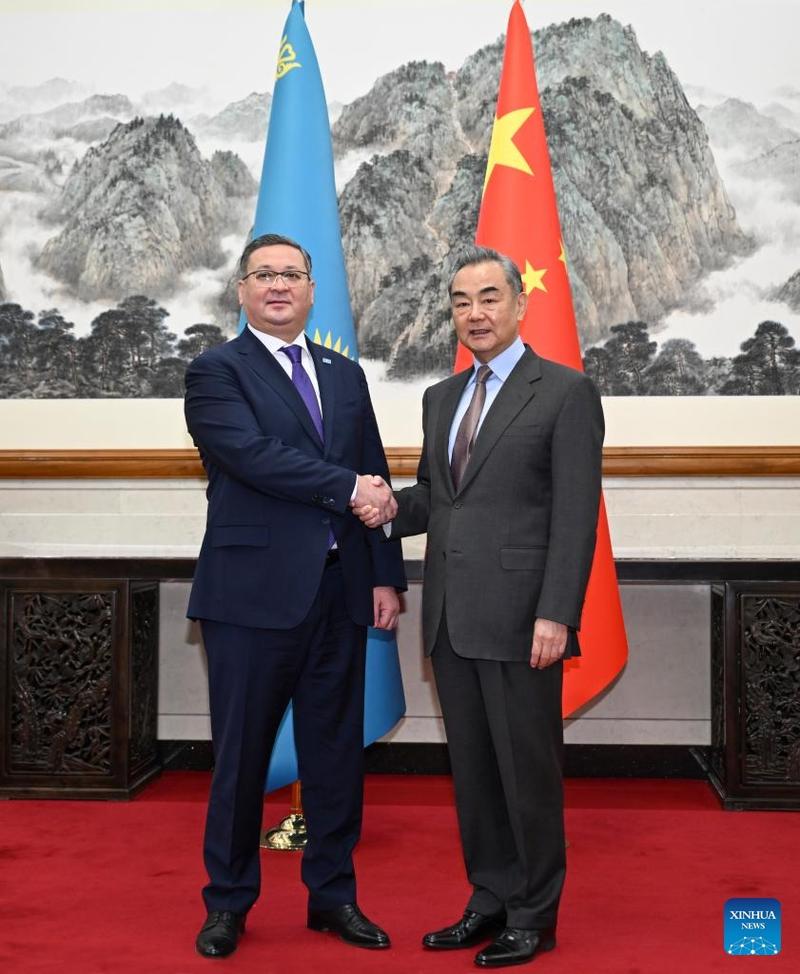 Chinese Foreign Minister Wang Yi (right) shakes hands with Kazakhstan's Deputy Prime Minister and Minister of Foreign Affairs Murat Nurtleu, during the First China-Kazakhstan Foreign Ministers' Strategic Dialogue, in Beijing, China, March 29, 2024. (PHOTO / XINHUA)
Chinese Foreign Minister Wang Yi (right) shakes hands with Kazakhstan's Deputy Prime Minister and Minister of Foreign Affairs Murat Nurtleu, during the First China-Kazakhstan Foreign Ministers' Strategic Dialogue, in Beijing, China, March 29, 2024. (PHOTO / XINHUA)
BEIJING - Chinese Foreign Minister Wang Yi held the First China-Kazakhstan Foreign Ministers' Strategic Dialogue with Kazakhstan's Deputy Prime Minister and Minister of Foreign Affairs Murat Nurtleu in Beijing on Friday.
Wang, also a member of the Political Bureau of the Communist Party of China (CPC) Central Committee, said that under the strategic guidance of the two countries' leaders, the bilateral relationship between China and Kazakhstan will maintain strong momentum of development, and become a good example of mutual trust, support and assistance among neighboring countries.
China is ready to work with Kazakhstan to increase the scale of trade within the framework of the Belt and Road Initiative, said Wang, calling on the two sides to jointly build a high-quality, sustainable and resilient new corridor of connectivity, increase people-to-people exchanges, and promote cooperation in new fields between the two countries.
The two sides jointly announced the establishment of a strategic dialogue mechanism between the two countries' foreign ministers
Nurtleu said that Kazakhstan gives priority to China in its diplomatic agenda. Kazakhstan firmly supports China in safeguarding its core interests on Taiwan and Xinjiang-related issues, and is willing to further strengthen political mutual trust with China.
Kazakhstan is willing to expand mutually beneficial cooperation and enhance exchanges between the two peoples, and coordinate closely with China on international and regional affairs, Nurtleu added.
The two sides jointly announced the establishment of a strategic dialogue mechanism between the two countries' foreign ministers.
The two sides agreed to jointly promote high-quality Belt and Road cooperation, deepen sub-national and people-to-people exchanges, enhance cooperation on battling against interference and infiltration, upgrade law-enforcement and security cooperation in an all-round way, continue to improve and strengthen the China-Central Asia mechanism, support each other in the rotating presidency of the Shanghai Cooperation Organization (SCO), and cooperate closely within the framework of multilateral organizations, such as the United Nations and the Conference on Interaction and Confidence Building Measures in Asia (CICA).


